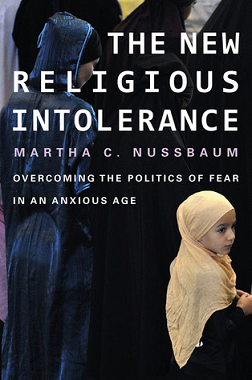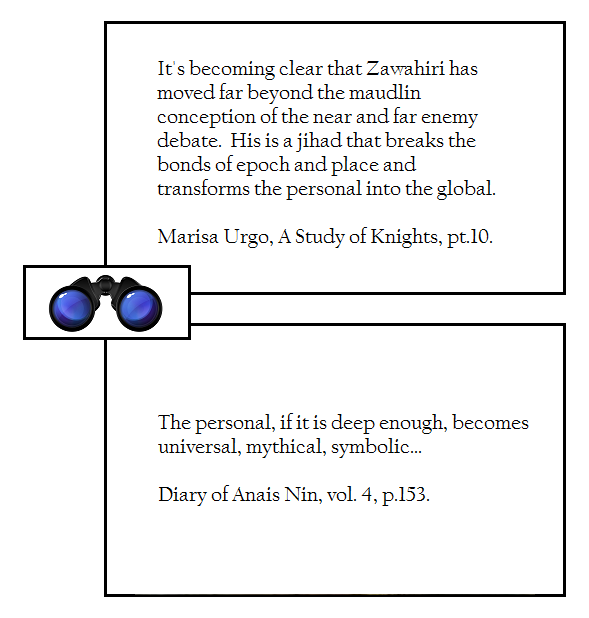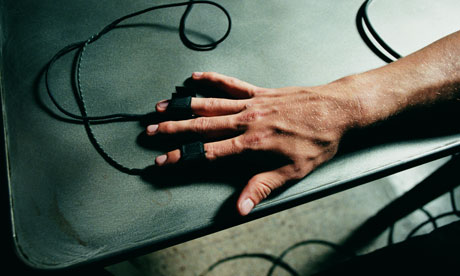Life imitates art, or vice versa?
Wednesday, July 11th, 2012[ by Charles Cameron — burqas and veiled threats, Martha Nussbaum, virtual reality ]
.
I believe the photo is from Dubai, the cartoon is by New Zealand’s Malcolm Evans, and all sorts of things are going on when we put the two of them together, thus:
**
For a start, the photographer presumably saw the same thing with his eyes and through his lens that the cartoonist saw in the mind’s eye, and then on paper. Who knows, one of them may have seen the other’s work, and that could have been what triggered their interest in capturing the same effect.
Call that the problem of simultaneous, independent vs sequential, causally connected origination. It’s a fascinating issue in archetypal psychology and cultural anthropology…
Then there’s the juxtaposition of the two images, and the fact of their close similarities and differences. Apart from the obvious difference of media, there’s the neat difference that the women in the photo reality might be thinking roughly the thoughts attributed to them in the cartoon, we’ll never know because thoughts are private — but the cartoon reality adds a “virtual” layer of text to the image, so the women’s “thoughts” and their parallelisms and oppositions are no longer tacit.
But then — hey, those two sets of thought are juxtaposed, just as the two styles of clothing are — so each of the two images I’ve juxtaposed is itself a carefully-executed juxtaposition, artfully conceived, and revealing by comparing and contrasting.
Each of those two images is a Sembl move.
And we haven’t even begun to talk about the issue of burqas and veils — or bikinis and short short skirts — yet.
**
But this post is really my oblique way of introducing Martha Nussbaum‘s book, The New Religious Intolerance, which grew out of her column on veils and burqas — and tummy tucks and breast implants — Veiled threats, on the NY Times Opinionator blog.
I’d love to review it. Will I ever even find time to read it?
**
Veils worn by nuns, Muslims, ninjas — and everybody in the Windy City in December. Circumcision in Islam and Judaism, metzitzah b’peh — and various forms of female genital mutilation around the world. Prayer in schools, other people’s prayers in school. Peyote and wine as taboos, as sacraments. Pork and beef, pigs and cows. Kosher, halal, voodoo — and Socrates sacrificing a cock to Asclepius…
This business of religion and society is a subtle, multi-faceted business.
**
**
My sympathies tend to go with whoever wants to wear whatever. But then I tell myself, I have different body parts, and they have different preferences.
Perhaps more accurately — and certainly more metaphorically — I might say that I am part-angel, part-beast.
Either way, I too contain multitudes.









